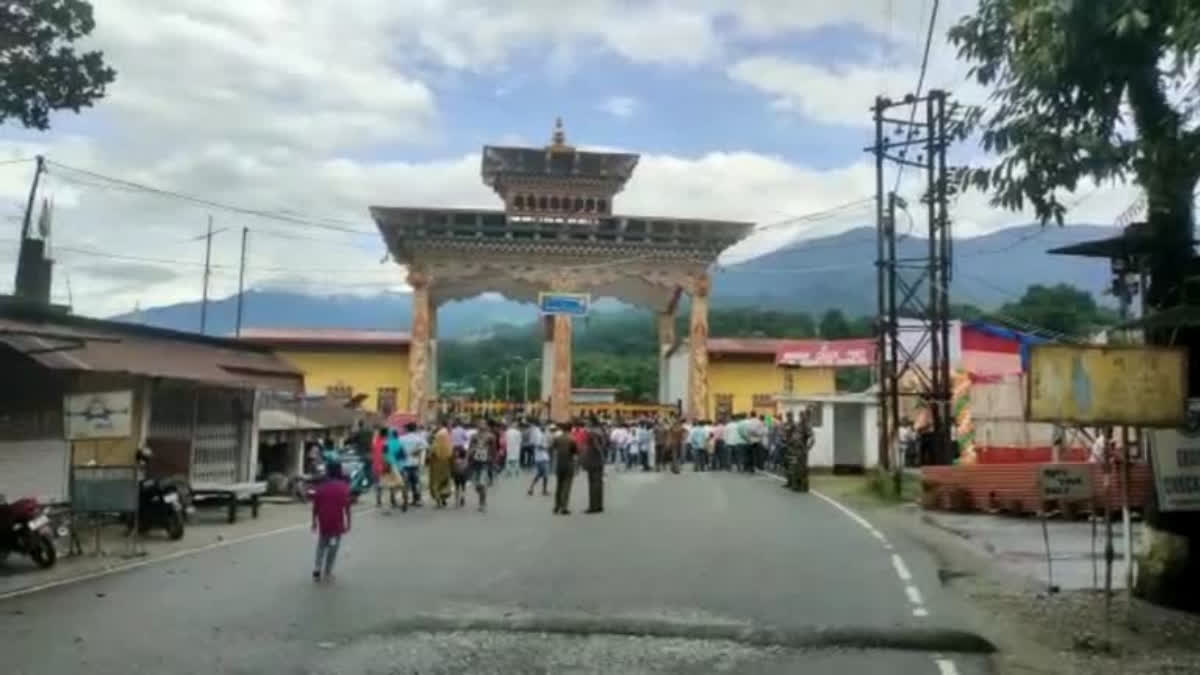New Delhi: Nominations for the runoff round of the Bhutan parliamentary elections scheduled for January 9 have started on Monday. The People's Democratic Party (PDP) of former Prime Minister Tshering Tobgay and the newly formed Bhutan Tendrel Party (BTP) emerged as the two largest parties in the primaries held on November 30. The Druk Nyamrup Tshogpa (DNT) led by incumbent Prime Minister Lotay Tshering failed to make it to the runoff round.
What has drawn the interest of observers is the sudden emergence of the BTP, registered only in January this year, as a challenger to an established party like the PDP. The PDP was in power in the Himalayan kingdom from 2013 to 2018. Despite its late entry into the poll fray, the BTP promptly took the lead by announcing a full slate of 47 candidates. In a short span, the BTP successfully assembled experienced candidates from diverse backgrounds, including politics, civil service, and business. The party conducted an extensive consultation campaign, engaging with various segments of society.
According to its manifesto, the BTP’s vision is “to create a vibrant and prosperous Bhutan, where every citizen is empowered to achieve their full potential and live a meaningful life founded on individual liberty and prosperity”. “The BTP aims to recognise every household as the foundation of a robust national economy and enable their engagement in the development process by promoting rural and urban enterprises that are economically competitive and environmentally friendly,” the manifesto states.
Economy! That is the keyword in the BTP’s manifesto. The party aims to make Bhutan a high-income country by 2034. “It means expanding the size of our economy to $10 Billion by 2034 from its current level of approximately $2.85 Billion in 2022. To attain the target, our economy will have to grow at an average rate of 12 per cent or more over a decade against the projected average growth of 5.5 per cent for the next five years,” the manifesto states.
It pointed out that, over the past decade (2010-2022), Bhutan’s economy stagnated at an average rate of 3.5 per cent as compared to 7.78 per cent during 2000-2010. “To overcome the existing stagnation, we must broaden and diversify our economic base beyond hydropower and tourism,” it stated.
The BTP aims to develop a National Skills Policy to identify and address the future and chronic skills shortage across different occupations. It promises to assist every unemployed youth to reskill, retrain and reequip with 21st-century skills in partnership with the private sector for 100 per cent employability within and outside the country.
The party will also endeavour to achieve full employment by 2029 and strive to reduce the youth unemployment rate below 10 per cent. The manifesto also promises to create a conducive ecosystem for entrepreneurs. The party says that it will launch and operate a ‘One Stop Career Centre’ under the Prime Minister’s Office to facilitate youth employment in collaboration with the Ministry of Industry, Commerce and Employment (MoICE). According to the manifesto, the party will conduct job fairs regularly to connect employers and job seekers in collaboration with MoICE. It also promises to facilitate the gig economy to build digital skills and increase income-earning opportunities, including improvement of access to digital infrastructure and payment options.
In terms of infrastructure development, the BTP aims to construct helipads in every gewog (group of villages) as required and investigate the feasibility of an alternative airport in the eastern region. It also promises to accelerate the creation of a railway network connecting border towns and initiate a comprehensive national broadband connectivity strategy, ensuring that every office, school, and hospital can access top-tier communication infrastructure linking them to the global network.
